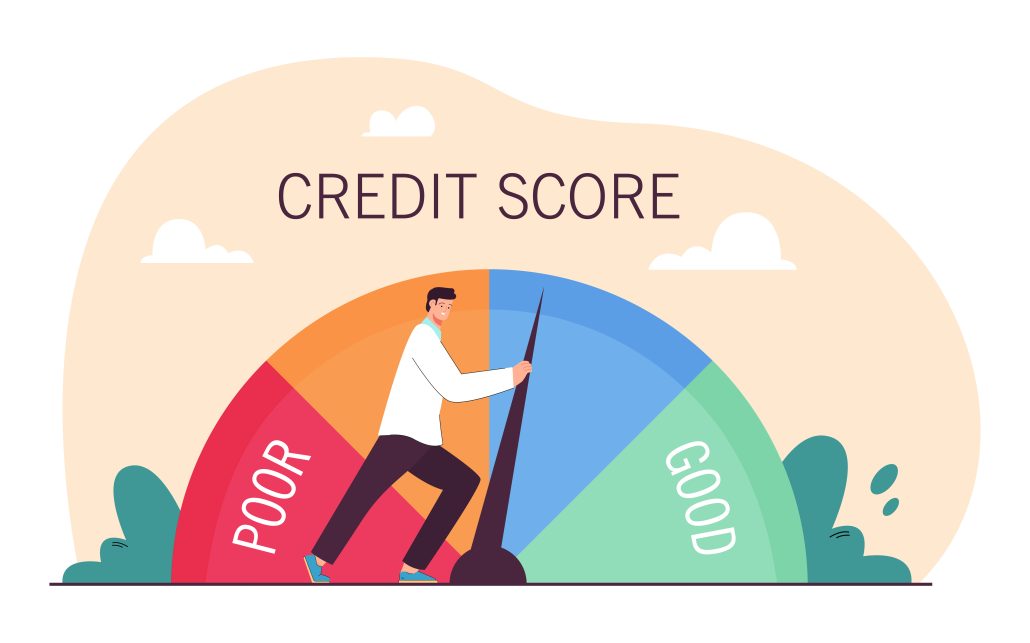
You may have heard of the term “Credit Score” before, but do you know what it is? It is actually not as complicated as it sounds! In this article, we will be guiding you through the As to Zs of credit scores and will be providing you with tips on how you should improve or maintain your credit score.
What is a credit score, and what is considered good?
A credit score is a four-digit number tagged to you, based on your creditworthiness. This will differ according to your past payment history. Credit scores range from 1000 to 2000, with 1000 being the lowest and 2000 the highest. Your credit score is categorised into various risk grades, as shown in the table provided by the Credit Bureau below.
| Credit score range | Risk grade | Probability of default |
| 1911-2000 | AA | 0.00%-0.27% |
| 1844-1910 | BB | 0.27%-0.67% |
| 1825-1843 | CC | 0.67%-0.88% |
| 1813-1824 | DD | 0.88%-1.03% |
| 1782-1812 | EE | 1.03%-1.58% |
| 1755-1781 | FF | 1.58%-2.28% |
| 1724-1754 | GG | 2.28%-3.46% |
| 1000-1723 | HH | 3.46%-100.0% |
According to CBS, the best credit scores typically range from the 1844 to 2000 range. This would put you in the BB risk grade and above.
Why is my credit score important?

Credit scores are extremely important, as it highlights your creditworthiness. The higher your credit score is, the higher the possibility of banks approving your loans, and providing you with better interest rates. If you have a low credit score, banks may take it as a sign that you are less likely to repay your debts, and thus have higher chances of defaulting.
What factors affect my credit score?
Several factors would affect your credit score.
- Payment History
If you have had a history of many late repayments, banks and lenders would automatically deem you as someone with a higher credit risk, and a higher chance of default. This would reduce your chances of securing loans if required.
- Number of credit applications
This refers to the number of times you apply for credit products. If you have applied for multiple cards within a short amount of time, your report will show that you have made multiple inquiries, resulting in a cumulative negative impact on your credit score. To avoid this, it is best to abstain from more than one application every six months.
- Credit Utilisation
This refers to your credit usage pattern. If you have a high utilisation rate, banks or lenders may see this as you are spending over your means. This may lead to them categorising you as a credit risk. As such, experts have noted that to reduce this risk, you should use not more than 30% of your available credit at any time.
- Length of Credit History
In Singapore, your credit history for the past 12 months plays a role in your credit score calculation. This means that if you have a bad repayment record, you will be able to “erase” it from your report after 12 months.
How do I check for my credit score in Singapore?
To check for your credit score, you can request it from the Credit Bureau Singapore (CBS). You will be able to either request a softcopy online at the CBS website, a hardcopy at the Credit Bureau office, or through email if you are overseas and unable to access the CBS website. It will be chargeable at S$8.00 before GST.
How do I improve my credit score?

If you are looking at improving your credit rating to an AA level, here are some tips on how you could do so!
- Pay your bills on time
Payment history is the biggest factor in your credit score calculation, so do not leave your repayments to the last minute. It is best practice to repay your bills in full every month such that you can save on interest payments. However, if you are unable to do so, make sure you pay at least the minimum amount required, to ensure that your credit score is not affected by late repayment histories.
- Review your credit reports
It’s important to check your credit reports to make sure there are no mistakes. If you find any errors, contact the lender right away to fix them. This will help maintain your credit score ratings.
- Reduce your Credit Applications
Too many applications may lead lenders to think that you are in dire need of more credit, due to your high spending. To avoid this, it is best to keep credit applications to one every half a year.
- Set up a Credit Limit
If you worry about overspending above your means, consider adjusting your credit limit by contacting your bank or card issuer. However, do note that there are several credit limit guidelines the Monetary Authority of Singapore (MAS) has set up, so make sure you read them before deciding on changing your limit.
- Use the Automatic Payment function
In Singapore, most banks have the option to set up an automatic payment function through GIRO. Instead of stressing over whether you’ve paid your bills, GIRO automatically deducts the required amounts for you. All you have to do is ensure that you have sufficient funds in the account.
Summary: Credit Scores
Credit scores are extremely important when it comes to applying for loans, mortgages, credit cards, or other credit products. However, remember that banks consider more than just that! They also evaluate your reputation, income, employment history, loan terms, and many other factors when deciding whether to grant you the credit you applied for.
Want to find the best mortgage rate in town? Check out our free comparison service to learn more!
Read more of our posts below!

